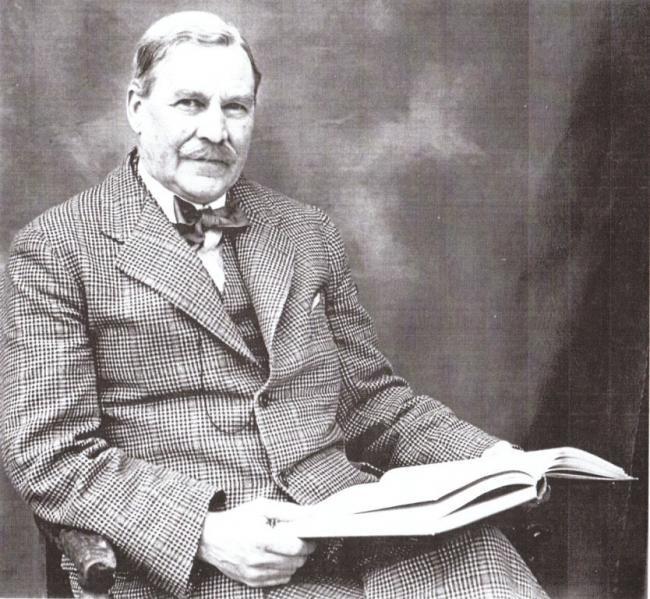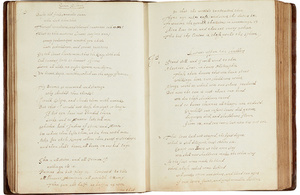Today in our poetry news roundup we take a look at the replacement memorial statue planned for a poet. We also have an article about a rare poetry manuscript that has been placed on an export ban.
Replacement Planned for Stolen Bronze Memorial

Thanks to the efforts of the memorial trust and the Australian fans of the poet WH Ogilvie, a monument that was stolen in 2016 is to be replaced.
The sculpture, which featured a book inscribed with the poet’s words and travels in Australia, has never been recovered. Now, an exact replica is to be made using 3D modelling software. The unveiling of the new statue is planned for just after 16th August – the poet”s birth date. This year will mark the 150th anniversary of his birth
The original memorial to the poet was put in place 26 years ago and featured a cairn which was built from reclaimed stone, which had formerly been a part of the Hawick auction mart. On top of this was the open book symbolising the poet”s Border and Australian periods. When the original memorial was made for the Borders a copy was made for Bourke in New South Wales, and it is this copy that has been used to create the 3D replica
The replacement statue has cost £5,400. However, the cost of a replacement cairn falls outside the budget of the memorial trust who are hoping that the common good fund of the town will help them with a further £2000.
Risk of Export for Rare Seventeenth-Century Poetry Manuscript

A very rare manuscript from the Stuart era which contains work by John Donne, a contemporary of William Shakespeare, risks being lost to the UK if a buyer cannot be located who is able to pay the asking price of £466,000. A temporary export ban has been placed on the manuscript in the hope of locating such a buyer.
Born in 1572 Donne was a cleric and poet who wrote mostly in the form of manuscripts. Ordained sometime in 1615 he became King James the First”s royal chaplain. It is understood that throughout his life Done didn”t want to be considered an author or a poet and very few of his lengthier poems were published. There were just a few in 1611 – 1612. This one is, therefore, a very rare surviving copy.
Because Donne preferred his published poetry to be in the form of manuscripts, they can be rather difficult to date. Experts believe that this manuscript dates from around 1625. The first complete collection of Donne poetry was not published until 1633, two years after his death.
In 1631, when Donne died, his poetry was highly sought after. However, towards the end of the 17th century, his words were thought to be undercorous and thus became less popular, and it wasn’t until late in the 19th century that his work was rediscovered again. Today, he is said to be one of the poets that lead the Renaissance period.


You must register to comment. Log in or Register.